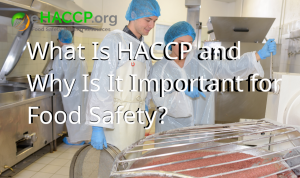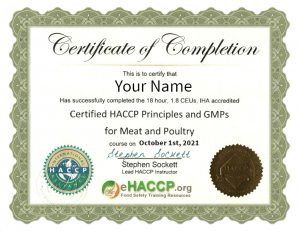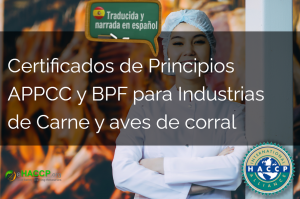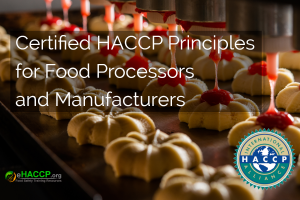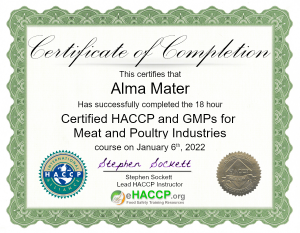HACCP Training and Certification: Managing Risk in Food Preparation
HACCP training and certification lead to increased trust, legal compliance, rigorous controls, and enhanced operations.
Benefits of HACCP Training and Certification
HACCP certification provides numerous benefits for businesses and demonstrates commitment to food safety. Here are some of the key advantages:
• HACCP increases consumer confidence and raises the image of products. Customers will recognize adherence to rigorous safety standards, giving them peace of mind.
• It enhances customer satisfaction and reduces the risk of foodborne illnesses. Stringent HACCP controls minimize contamination, lowering the chances of customers getting sick.
• Staying compliant with the law is crucial. EC852/2004 Article 5 mandates that food companies implement HACCP-based safety systems. Certification proves the meeting of legal obligations.
• It demonstrates high standards for food safety. HACCP is an internationally recognized risk management framework, signaling dedication to best practices.
• Training staff in HACCP principles raises awareness of hazards and how to control them. Employees learn proper procedures to prevent contamination.
• Certification verifies the hazard analysis and safety plan meet industry expectations. An audit by an accredited body validates the HACCP system.
• It standardizes operations and brings consistency. HACCP provides a structured methodology for assessing and managing risks.
• Implementing HACCP may reduce costs over the long-term by improving efficiency and minimizing waste or recalls due to issues.
• Certification can give the business a competitive edge. Promoting HACCP compliance shows customers commitment to safety.
In summary, HACCP training and certification lead to increased trust, legal compliance, rigorous controls, and enhanced operations. Investing in HACCP demonstrates that the top priority of a business is producing safe food products for consumers.
What Is HACCP and Why Is It Important for Food Safety?
HACCP, or Hazard Analysis and Critical Control Points, is a preventative system focused on analyzing and controlling potential food safety hazards. It involves:
• Identifying possible hazards that could contaminate food or cause foodborne illness. This includes biological, chemical, and physical hazards.
• Determining critical control points in the food production process where hazards can be controlled or eliminated.
• Establishing critical limits for safety at each control point.
• Implementing procedures to monitor control points and critical limits.
• Taking corrective actions when limits are exceeded.
• Verifying and recording that the system is working effectively.
There are a few key reasons why HACCP is so vital for food safety:
• It is a proactive system to prevent hazards rather than reacting to problems after the fact. HACCP helps control risks before they occur.
• It looks comprehensively at potential risks throughout the entire food production system from start to finish. This minimizes the chance of problems slipping through the cracks.
• HACCP is flexible and can be adapted to many different food production environments, from restaurants to processing plants.
• It establishes standardized procedures and documentation, improving transparency and accountability.
• Adhering to HACCP is often required by regulatory agencies and food safety laws. For example, the FDA requires juice and seafood companies to develop HACCP plans.
• Implementing HACCP shows a strong commitment to food safety. This builds consumer trust in brands and products.
In summary, HACCP plays a critical role in food safety training because it provides a rigorous, systematic approach to proactively identify and control hazards. HACCP certification demonstrates due diligence in protecting public health.
Implementing an Effective HACCP System
An effective HACCP system requires commitment and diligence. To successfully implement HACCP, management must fully support and promote the program. Employees need initial and ongoing training to comprehend the principles and perform required tasks.
Constant monitoring and verification ensure HACCP remains effective. Regularly review hazard analyzes and critical control points. Monitor control measures and critical limits daily. Conduct periodic equipment calibrations and system audits. Verify with testing that CCPs are kept under control.
Built upon prerequisite programs like GHP and GMP, SSOP, HACCP significantly strengthens overall food safety management. It provides a preventative framework to systematically identify hazards, assess risks, and establish controls. This structured approach increases control of potential dangers.
Follow these steps when developing a site-specific plan:
• Assemble a HACCP team with expertise in production processes and food safety. Engage employees doing the work.
• Describe the food, its distribution and intended use, plus processing flow diagrams. Identify hazards and control measures.
• Conduct a hazard analysis to determine CCPs - points where hazards can be controlled.
• Determine critical limits for monitoring each CCP.
• Establish procedures to monitor CCPs and verify controls work.
• Plan corrective actions in case limits are exceeded.
• Keep records for monitoring CCPs and verifying the system works.
With management commitment and ongoing diligence, HACCP protects the health and safety of consumers, enhancing public trust.
Frequently Asked Questions About HACCP Certification
• How long does it take to get HACCP certified?
The time it takes to get HACCP certified can vary depending on the specific training program. Some key factors that determine the length of certification include:
• The process of developing and implementing a HACCP plan for each facility. This involves hazard analysis, identifying critical control points, and establishing monitoring procedures, corrective actions, verification procedures, and record-keeping. This process can take weeks or months.
• The time spent taking the HACCP training course and exam. Online courses may take 16-18 hours to complete.
• Scheduling and passing the certification exam. Online exams can usually be taken immediately after training.
In summary, the total time to become HACCP certified often ranges from 1-3 months but can be shorter or longer.
• How do I recover my password or reprint my certificate?
Most HACCP training providers have student support teams available to assist with technical issues. You can contact them via email, live chat, or phone. Common requests they can help with include:
• Retrieving forgotten username or passwords. They will verify the identity before resetting credentials.
• Unlocking an account that has been locked after too many failed login attempts.
• Reprinting a lost or misplaced HACCP certificate. Certificates are usually available for download from the online student account.
• Providing a replacement certificate due to a name change or error on the original. Support reps can reissue corrected certificates.
• Answering questions about accessing online course modules or materials.
• Troubleshooting problems with taking online quizzes or exams.
If there are any issues accessing the training course or certificates, don't hesitate to reach out to student support for assistance.
• What are the steps to renew an expired HACCP certification?
Conclusion
Food safety is an incredibly important issue, as poor hygiene and improper food handling can have severe consequences. Implementing HACCP-based systems is critical for any food business to minimize risks and hazards. By ensuring staff is properly trained on HACCP principles, the protection of customers, complying with regulations, and upholding industry standards are being adhered to. The process of conducting thorough risk assessments gives the tools to actively control potential dangers. When everyone understands their role in preventing foodborne illnesses and allergic reactions, lives can ultimately be saved. Though it requires an investment in training, integrating HACCP systems is necessary for both ethical and legal reasons. The principles empower the team to proactively identify and manage hazards. With the right knowledge, the business will exemplify safety and responsibility. The bottom line is that HACCP certification helps create a culture of accountability and vigilance. This prevents the devastating effects improperly handled food can have on health. The principles of HACCP form the foundation of a comprehensive food safety plan that benefits all.
Stephen Sockett
eHACCP.org
+16133078988 ext.
email us here
Visit us on social media:
Facebook
Twitter
LinkedIn
YouTube
Other
Legal Disclaimer:
EIN Presswire provides this news content "as is" without warranty of any kind. We do not accept any responsibility or liability for the accuracy, content, images, videos, licenses, completeness, legality, or reliability of the information contained in this article. If you have any complaints or copyright issues related to this article, kindly contact the author above.

